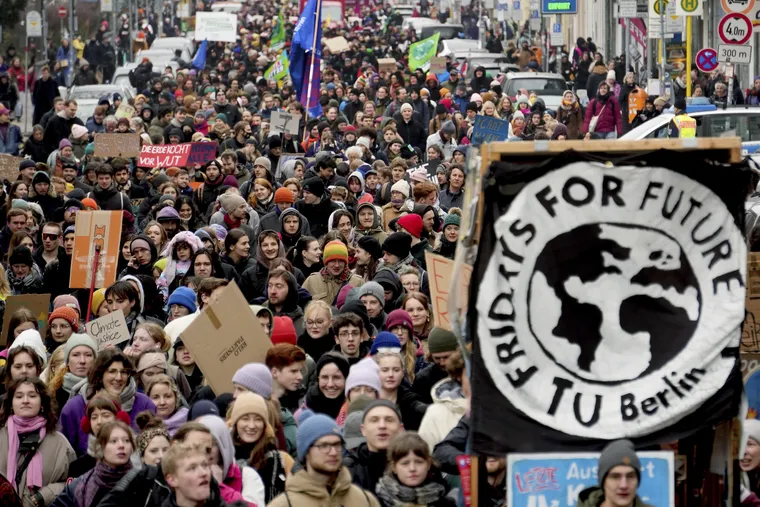A demand for tougher government action against global warming, particularly in curbing greenhouse gas emissions in the transportation sector have been made by thousands of climate protesters that gathered in Berlin and other German cities on Friday.
Government’s efforts to impose a general speed limit, phase out combustion engines and massively invest in public transport have recieved a pushback from a small pro-business party, the Free Democrats that controls Germany’s Transport Ministry.
The refusal has frustrated the party’s larger coalition partners, Chancellor Olaf Scholz’s Social Democrats and the environmentalist Greens, as well as climate campaigners who are concerned that Germany is on course to missing its own emissions targets and want the government to take its climate goals “very seriously.
The protests in Germany are part of a global “climate strike” called by the group Fridays for Future, which drew inspiration from Swedish activist Greta Thunberg ’s protests outside the parliament in Stockholm.
Darya Sotoodeh, a spokesperson for the group, said Germany’s transport minister is placing too much focus on the country’s car industry, at the expense of affordable public transport. Last year the government agreed to introduce a nationwide public transit ticket costing 49 euros ($52) a month, but bus and train companies say it is not sustainable without further government subsidies.
Public transit labor unions, whose members went on strike in parts of Germany on Friday to demand higher wages, expressed support for the climate protest.
Read also: UK announces £75 million pledge to marine conservation projects
“We’re standing side-by-side with Fridays for Future. With more pressure on the government we can actually achieve the climate goals,” said Mathias Kurreck of the ver.di union, which also represents public transport transit workers.
The International Energy Agency warned this week that the trend toward ever bigger cars is a growing problem for the environment after the rise in global carbon emissions last year was partly blamed on a rebound in air travel as pandemic restrictions eased.
Scientists warn that international efforts to limit the average worldwide temperature increase to 1.5 degrees Celsius (2.7 Fahrenheit) compared with pre-industrial times are failing.
The consequences of higher temperatures are already being felt in many parts of the planet, including in Europe. Governments in Italy — which also saw protests — and France warned this week that the countries face another year of drought after winter brought little rain and snow.
Story was adapted from AP.
